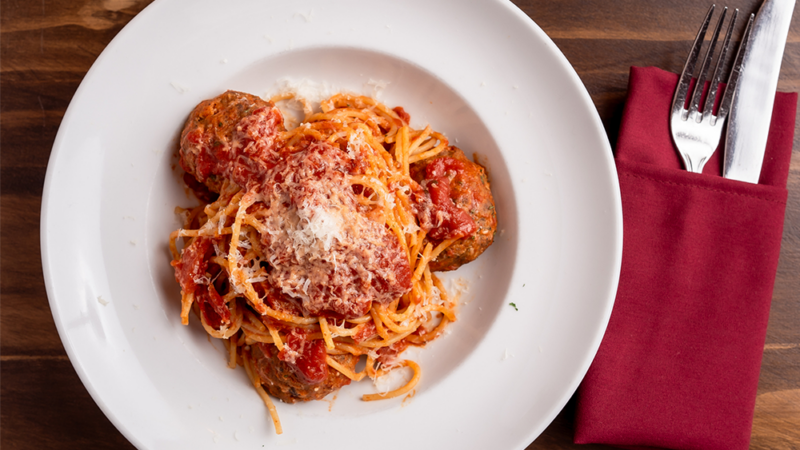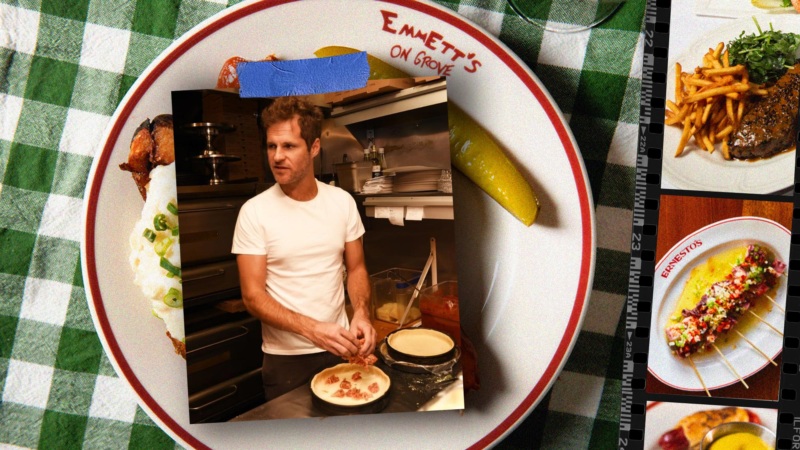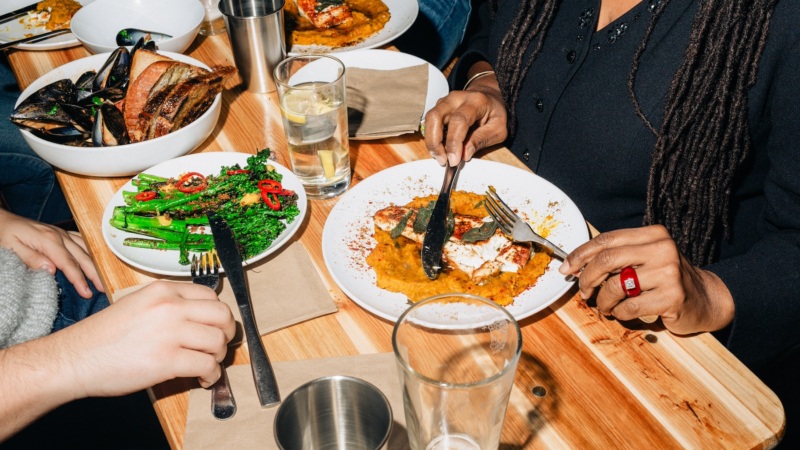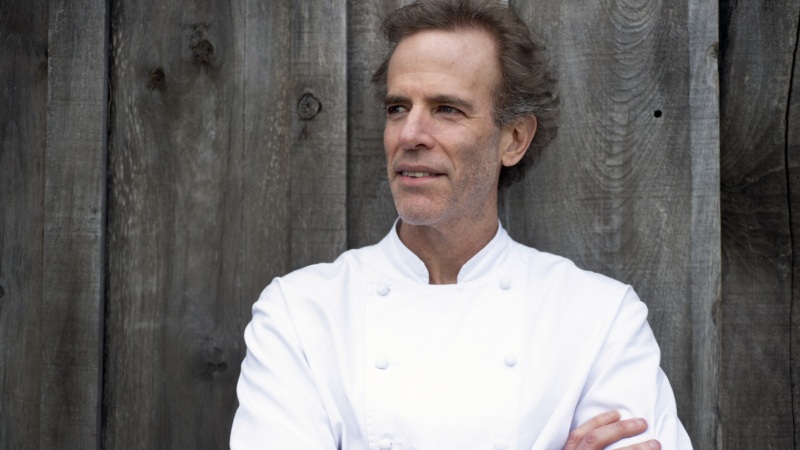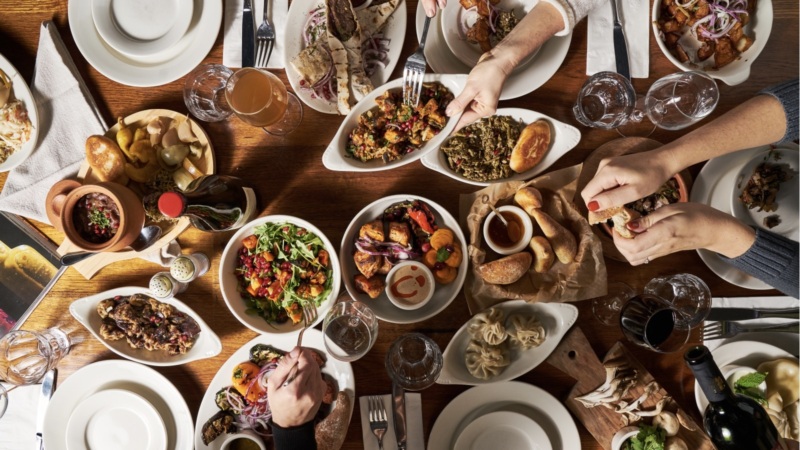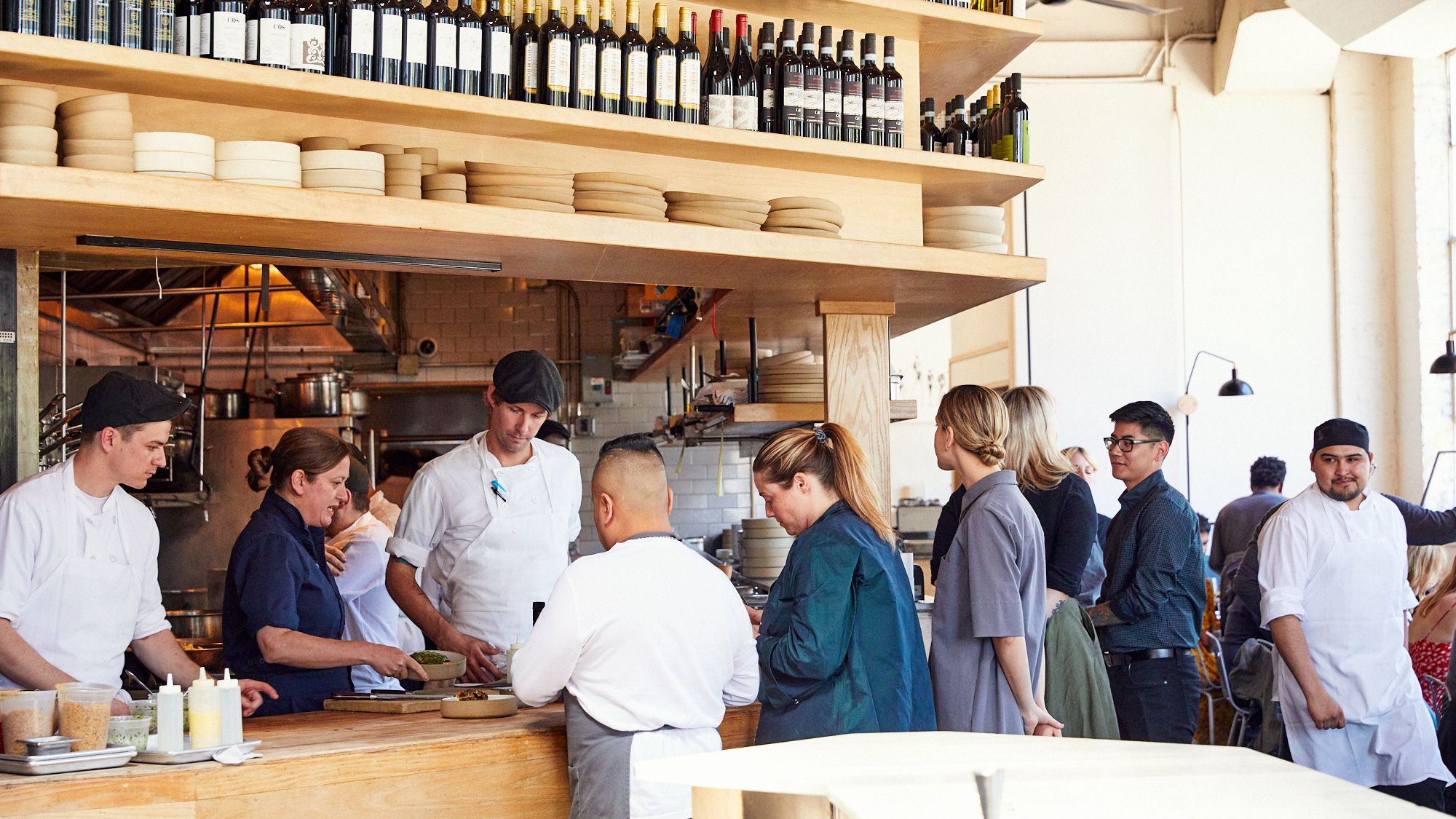
Collaboration is at The Heart of Missy Robbins’ Beloved Lilia
Over the course of eight weeks, The Women of Food visited seven cities, and invited thirteen chefs, collaborators, and purveyors to participate in this female-led movement. Together, they used the platform to talk about what it means to be a woman in a male-dominated industry; they gave speeches on building teams, creating safe spaces for creative work, and equipping the next generation with the tools and confidence to succeed.
And yet, the true connective force at each dinner was that each woman had a story to tell. These are the chefs who shaped The Women of Food, and these are their stories.
Los Angeles ∙ Atlanta ∙ Boston ∙ Chicago ∙ Nashville ∙ Washington, D.C.
It’s lunchtime on the corner of Williamsburg’s North 10th Street and Union Avenue, and magic is in the air at Lilia. For chef Missy Robbins, it’s been a wild ride in the few years since her arrival in Brooklyn, marked with three-star reviews from The New York Times for both of her restaurants and a James Beard Award for Best Chef: New York City.


On this sunny Saturday, she’s here to feed starry-eyed diners, and to thank her team for their contributions along the way. But first, spritzes: a bartender pours Aperol into a row of wine glasses, topping each one off with bubbles and lemon twists. The hearth quietly roars in the open kitchen and the afternoon unfolds like a Broadway musical– a beloved cast of characters and greatest hits. With each plate that arrives—grilled clams with Calabrian chile and ample bread crumbs, sugar snap peas laced in lardo and black pepper—diners help themselves in between fuzzy sips. Robbins, clad in a navy jumpsuit uniform, grabs the microphone as smiling faces look on. For the veteran chef, the occasion is a moment to honor collaboration. And as she singles out the precise amount of time and effort each of them has devoted to this stellar restaurant, her staff is full of pride.
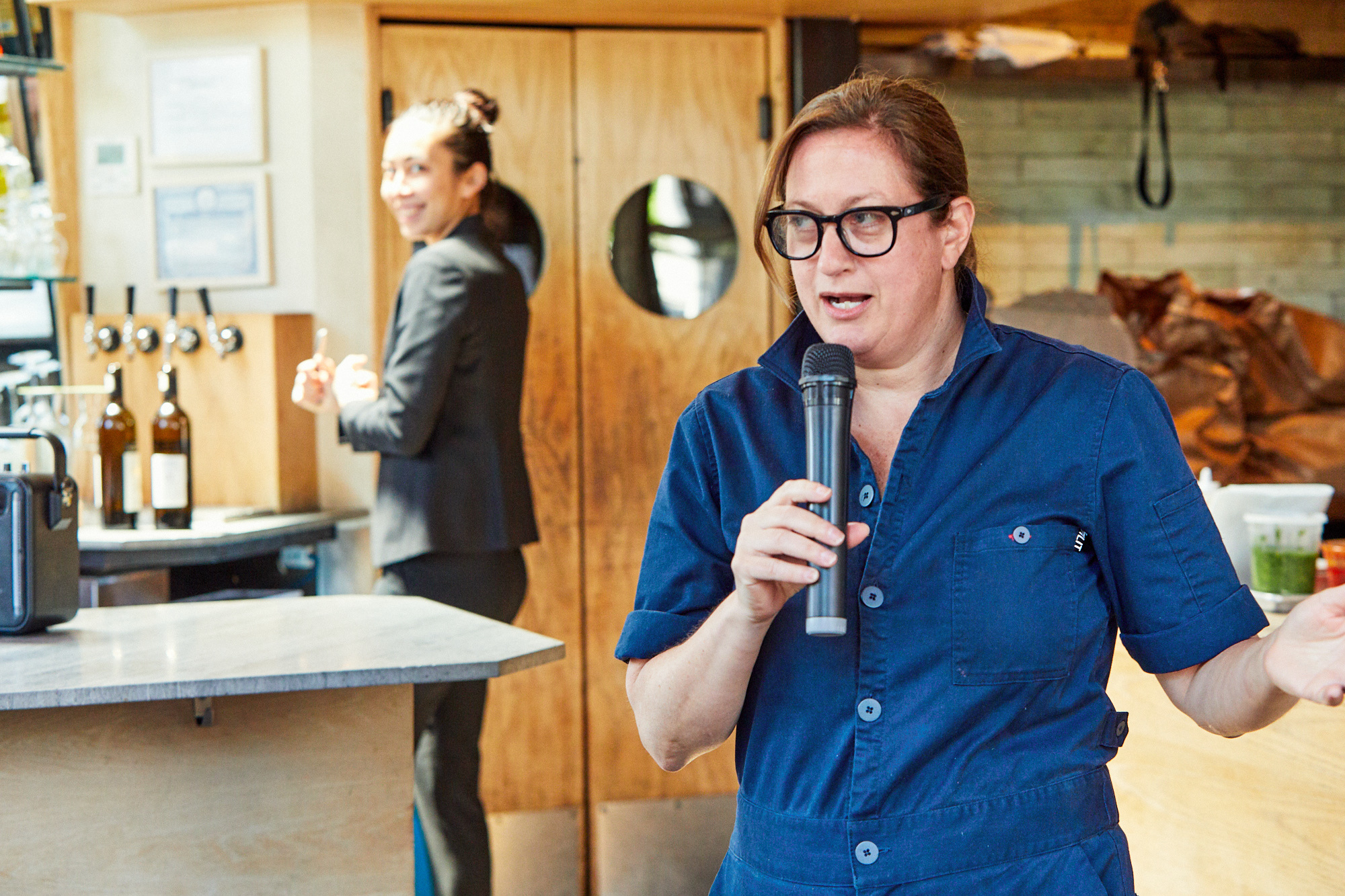
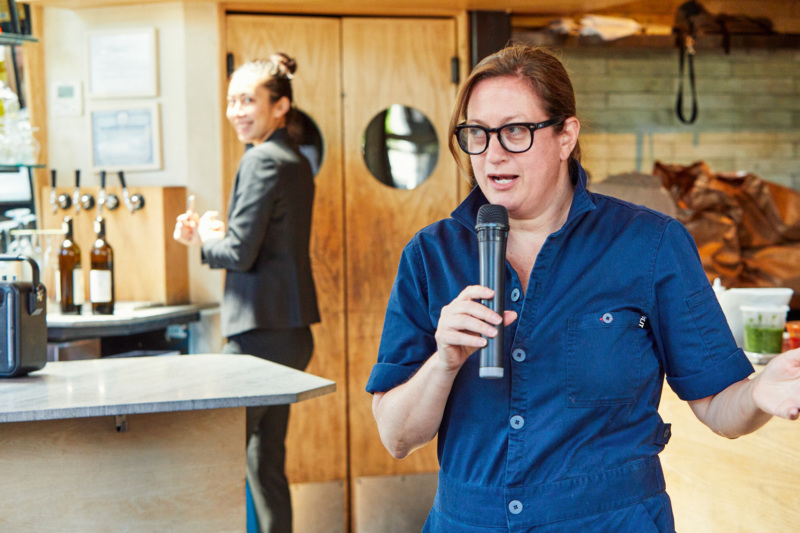
The theme of the day, as put forth by Robbins, is The Next Generation. “My goal now, as both a restaurateur and chef, is really to mentor the next generation, be proud of those people that are coming up with us, and watch them grow,” she says. “I look around the room, and I can name every person here who has started with us in one position and moved up to another.”
Robbins acknowledges each team member individually, like Olivia Hagerty, who came to Lilia right after college and is now on her third station in the kitchen. And Alicia Blegen, who was the most junior manager when the restaurant opened, becoming the GM only six months later. Aaron Diener, whom Robbins has known for fifteen years since he was a young cook in Chicago, is currently the chef de cuisine. “I can’t name every single person here, you guys will never eat,” Robbins jokes. “But as you can see, we have a really incredible team. And it’s just a pleasure to work with them.”
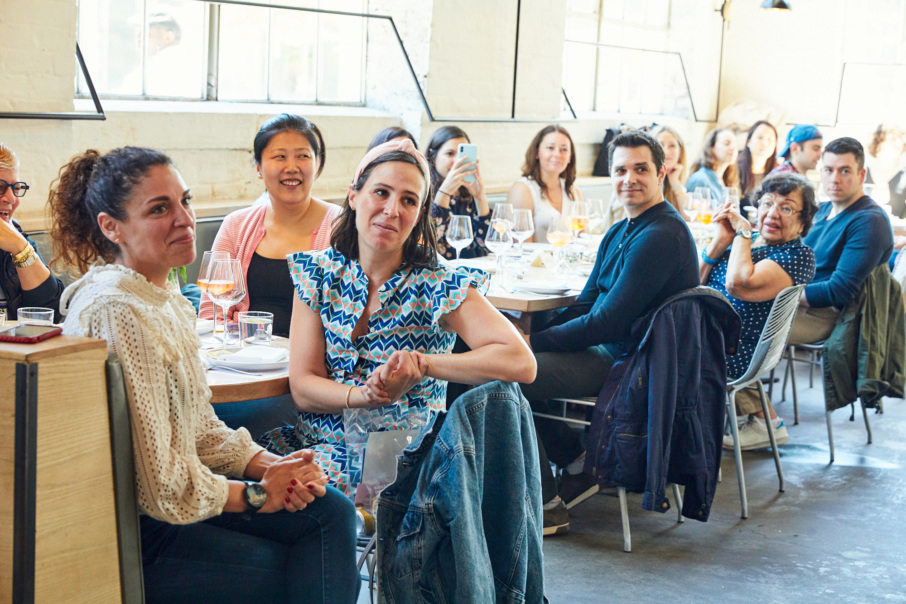

Robbins returns to the kitchen to dole out curly ribbons of mafaldini with pink peppercorn and Parmigiano; rigatoni slick with spicy, bright-red tomato sauce; and plump pockets of ramp tortelli, filled with prosciutto, mint, and Parmigiano. Finally, in classic form, wedges of deep-yellow olive oil cake, served with honey whipped cream, grappa, and fresh strawberries arrive at the table.
Guests are abuzz, not only with the joy that comes with eating Robbins’ food, but in this rare moment of humble celebration. Yet, the chef acknowledges that the work that goes into both Lilia and Misi cannot be attributed to her alone: “These are the people who really make it happen,” she says. “I’m not the one standing behind the fire every day. They make the machine run, and we owe a lot to them.”

